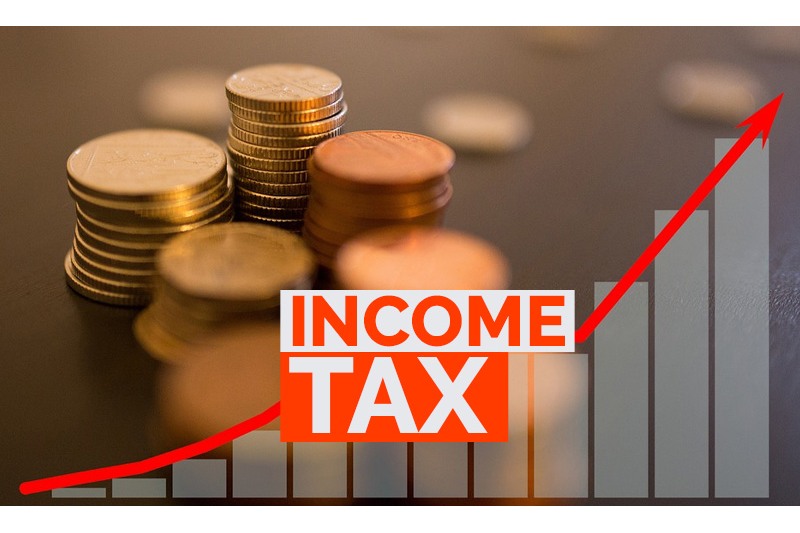Business
6 Quick Strategies To Reduce Income Taxes

January, February, and March Many of us rush to get our tax savings for the financial year at this time of year. These six straightforward tax preparation suggestions can assist you in your tax-saving endeavors for the 2023–2024 fiscal year.
1. Instruments To Save Taxes
With Section 80C deductions, you can lower your taxable income by up to Rs. 1.5 lakh every fiscal year. Both individuals and Hindu Undivided Families (HUFs) are eligible for these deductions, which allow you to deduct up to Rs. 1.5 lakh from your total income under Section 80C. Therefore, you can still take advantage of Section 80C deductions of up to Rs. 1.5 lakh even if you have opted for the old tax regime. It is important to understand, nevertheless, that if you have chosen the new tax regime, these deduction provisions do not apply to you.
A few of the section 80C basket’s tax-saving investing options are shown below:
- Provident Fund for Employees (EPF)
- PPF, or the Public Provident Fund
- Fixed deposits with a minimum five-year term
- plans for life insurance
- Mutual funds ELSS
- Other pension programs, such as the National Pension Scheme (NPS)
- ETPrime
By making prudent investments in these financial instruments, one can simultaneously attain financial goals and take advantage of tax benefits (up to an investment cap of Rs 1.5 lakh each fiscal year). Tax benefits, however, are only available under the previous tax system. Selecting the new tax regime, which offers reduced tax rates, entails giving up a number of tax breaks and exemptions, including the section 80C advantage. Investments in these instruments, for individuals under the new tax regime, will only help them achieve their financial goals, not save money on taxes.
2. Pick Suitable Elements For The Pay Structure
For those who are salaried, it is beneficial to evaluate the pay plan that the employer offers and choose elements that maximize tax benefits. For example, if you’re renting, it could be helpful to select House Rent Allowance (HRA), ask for reimbursement for your internet and phone bills, and request food coupons, education allowances, and other benefits. Next, when determining taxable income, one might claim applicable deductions/exemptions under certain guidelines.
3. An Increase In The EPF Contribution
If they haven’t hit the Rs 1.5 lakh investment cap, salaried folks may want to think about adding more money to their EPF payments as well as to the “Voluntary Provident Fund” (VPF). Under some restrictions, the excess donations may also be subtracted from taxable income. Additionally, the employee may be eligible for additional deductions from the employer’s 10% salary ceiling contribution to the National Pension System (NPS).
4. Avail Tax Benefits On A Home Loan
The interest and principal payments made on a housing loan taken out for the purpose of building or buying a home can be deducted from taxable income, subject to certain restrictions outlined in tax laws, if the loan is taken out from a financial institution such as a bank, housing finance company, or NBFC. Nevertheless, these tax benefits are only available if the previous tax system is selected. It is noteworthy that the deduction for the principal repayment amount is restricted under Section 80C to a total of Rs 1.5 lakh.
5. Benefit From Health Insurance’s Tax Advantages
The income tax regulations provide a deduction for health insurance premiums paid for dependent parents, children, spouses, and oneself. Thus, in addition to receiving tax benefits for the premiums paid toward these policies, people can buy health insurance for themselves and their family members to help with unexpected medical costs. For the self, spouse, and dependent children, the allowable deduction is up to Rs 25,000; for senior citizen parents, it is up to Rs 50,000.
Senior adults can also claim a deduction of up to Rs 50,000 for medical costs paid during the year if they are not covered by any health insurance coverage.
6. Select The Appropriate Tax System
Beginning with the 2020–21 fiscal year, the government implemented a new, more straightforward optional personal income tax system. If certain requirements are completed, individuals or Hindu Undivided Families (HUFs) may choose to pay taxes at lower slab rates, which are applicable without some exemptions and deductions. As a result, people can evaluate the taxes due under the current and new tax regimes and select the one that provides the most financial benefits.
-

 Gadget4 weeks ago
Gadget4 weeks agoAfter Grand Success on BLDC Ceiling Fan, Eff4 Is Launching Smart Bulb
-

 Festivals & Events4 weeks ago
Festivals & Events4 weeks agoGoogle Celebrates Cherry Blossom Season with Animated Doodle
-

 Business3 weeks ago
Business3 weeks agoPrakash and Kamal Hinduja: Driving Social and Environmental Change
-
Education4 weeks ago
Fred DuVal: University Leadership as a Critical Resource for Climate Change Research and Life-Saving Solutions
-

 Health3 weeks ago
Health3 weeks agoThe Hinduja Brothers Commitment to Global Health: Empowering Communities Across Borders
-

 Cryptocurrency3 weeks ago
Cryptocurrency3 weeks agoDesigned For The Masses: How Akasha (AK1111) Is Unlocking Crypto For The Next Billion Users
-

 Cryptocurrency4 weeks ago
Cryptocurrency4 weeks agoNexaglobal & Future World Token (FWT): Could This Be the Next Big Crypto Investment of 2025?
-

 Sports4 weeks ago
Sports4 weeks agoWomen’s NCAA Tournament 2025 Sweet 16: Full Schedule, Fixtures, Teams, Bracket, and How to Watch March Madness Basketball Match Live

























